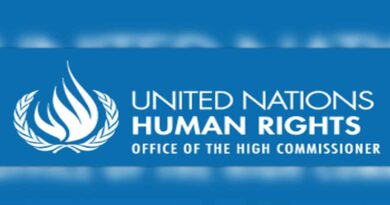Supreme Court Grants Sisodia Bail in Delhi Excise Policy Case
(Judicial Quest News Network)
New Delhi 10-08-2024
In a landmark decision on Friday, the Supreme Court granted bail to former Delhi Deputy Chief Minister Manish Sisodia, who had been detained for over 17 months without trial in connection with money laundering charges related to the Delhi excise policy. The bench, consisting of Justices BR Gavai and KV Viswanathan, emphasized that the right to a speedy trial and personal liberty are fundamental and must be protected.
“We find that the finding of the learned trial judge that it is the appellant who is responsible for delaying the trial is not supported by the record. The learned Single Judge of the High Court endorses the finding of the trial court on the ground that the accused persons have taken three months’ time from 19th October 2023 to 19th January 2024 for inspection of “un-relied upon documents “despite repeated directions from the learned trial court to conclude the same expeditiously. It is to be noted that there are around 69,000 pages of documents involved in both the CBI and the ED matters. Taking into consideration the huge magnitude of the documents involved; it cannot be stated that the accused is not entitled to take a reasonable time for inspection of the said documents. In order to avail the right to fair trial, the accused cannot be denied the right to have inspection of the documents including the “un-relied upon documents “The court observed.
The Court criticized the Central Bureau of Investigation (CBI) and the Directorate of Enforcement (ED) for their failure to expedite the trial, highlighting that prolonged detention without trial violates fundamental rights under Article 21 of the Constitution. The Justices ruled that Sisodia should be released on a Rs 10 lakh bail bond and must surrender his passport and report to the police station every Monday.
“The Court further observed that, over a period of time, the trial courts and the High Courts have forgotten a very well-settled principle of law that bail is not to be withheld as a punishment. From our experience, we can say that it appears that the trial courts and the High Courts attempt to play safe in matters of grant of bail. The principle that bails is a rule and refusal are an exception is, at times, followed in breach. On account of non-grant of bail even in straight forward open and shut cases, this Court is flooded with huge number of bail petitions thereby adding to the huge pendency. It is high time that the trial courts and the High Courts should recognize the principle that “bail is rule and jail is exception”.
The Court also rejected the agencies’ request to bar Sisodia from accessing the Delhi Secretariat, citing his strong societal ties and lack of flight risk.
“Insofar as the apprehension given by the learned ASG regarding the possibility of tampering the evidence is concerned, it is to be noted that the case largely depends on documentary evidence which is already seized by the prosecution. As such, there is no possibility of tampering
with the evidence. Insofar as the concern with regard to influencing the witnesses is concerned, the said concern can be addressed by imposing stringent conditions upon the appellant.”
Justice Gavai, who authored the verdict, stressed that incarceration without trial cannot be used as a form of punishment and that the principle of bail as a rule rather than an exception must be upheld. Despite the prosecution’s presentation of 493 witnesses and extensive documentation, the Court found that continued detention was unjustifiable.
This decision follows Sisodia’s previous bail attempts, with the Supreme Court having earlier denied interim bail but underscoring the right to a speedy trial. The Court criticized the procedural delays and reaffirmed that justice must not be a game of chance but a right afforded to all.




